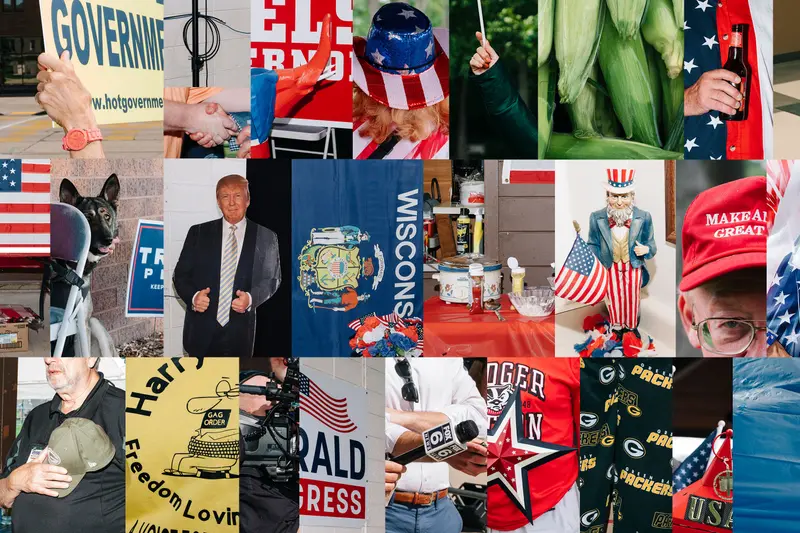Note: In September, ProPublica’s Megan O’Matz joined up with photographer David Kasnic for three days, attending two Republican events and an activist’s court hearing to report for a story on how Wisconsin’s political environment is being transformed. Kasnic has been photographing Wisconsin’s political scene for years while O’Matz moved to the state in 2021.
Our excursion together began at a Constitution Day celebration at a community park in New Berlin, Wisconsin. The next day we were in Waukesha for a “meat-and-greet” event of food and politics at the county’s Republican Party headquarters.
Kasnic then went to Racine for a court hearing on a criminal case involving Harry Wait, a conservative activist. Wait has admitted publicly to having absentee ballots in the names of two elected officials sent to his home; he said the move was intended to demonstrate the vulnerability of a state government website. He was in court for a preliminary hearing on fraud charges. Wait, defending his actions, has said the state was operating a “rogue system.” A judge has entered a not guilty plea on Wait’s behalf, court records show.
I talked to Kasnic about how we approached this assignment; our conversation has been edited and condensed for clarity.
Day One: Constitution Day Celebration, New Berlin
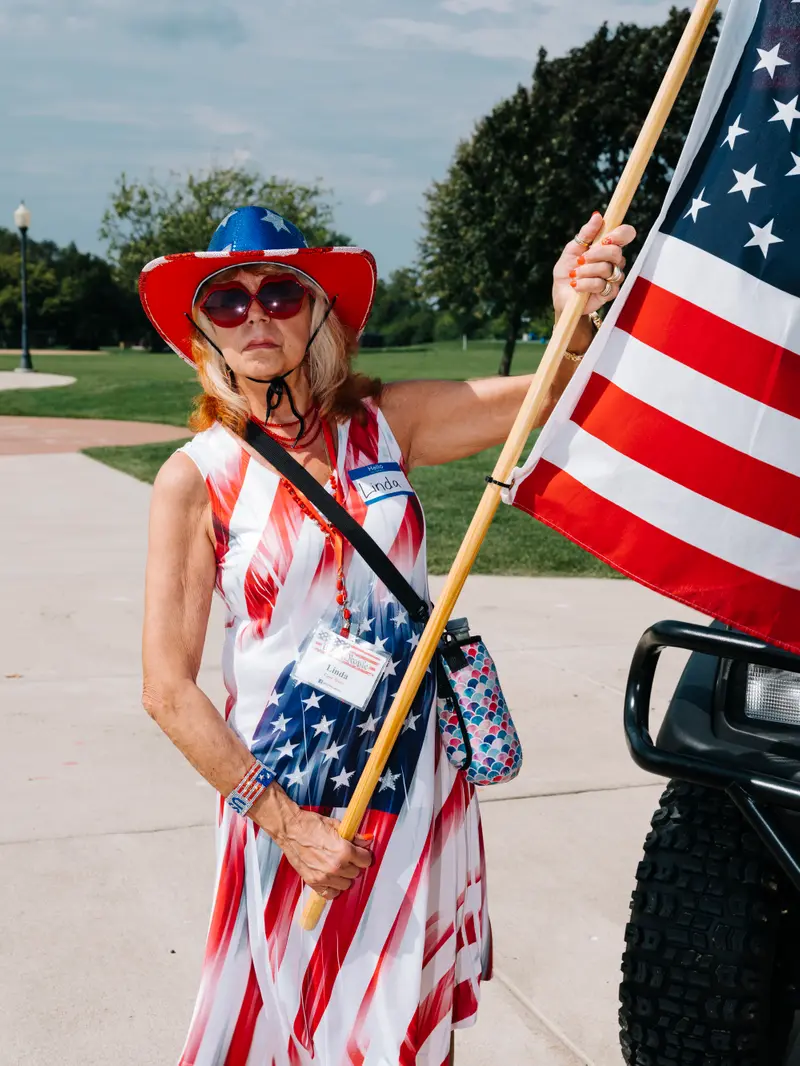
Kasnic: What was the inspiration behind the story?
O’Matz: In Wisconsin, it seems that Election Day 2020 never ended. Even though Donald Trump lost the state, his supporters haven’t given up and are revising the rules governing how elections are run. We wanted to try to connect with voters, to hear their thoughts and meet them wherever they are — in parks and courthouses and even dive bars. The folks who believe the election was not fair, despite having no evidence of widespread fraud, have had some success in the courts. They’ve won rulings that tighten controls on absentee balloting and increase the likelihood that more of those ballots will be thrown out because of technicalities. Reading about the minutiae of election law, though, can be ponderous, and we needed a photographer to help us show the people and the passion behind all this activity. That’s where you came in, David.
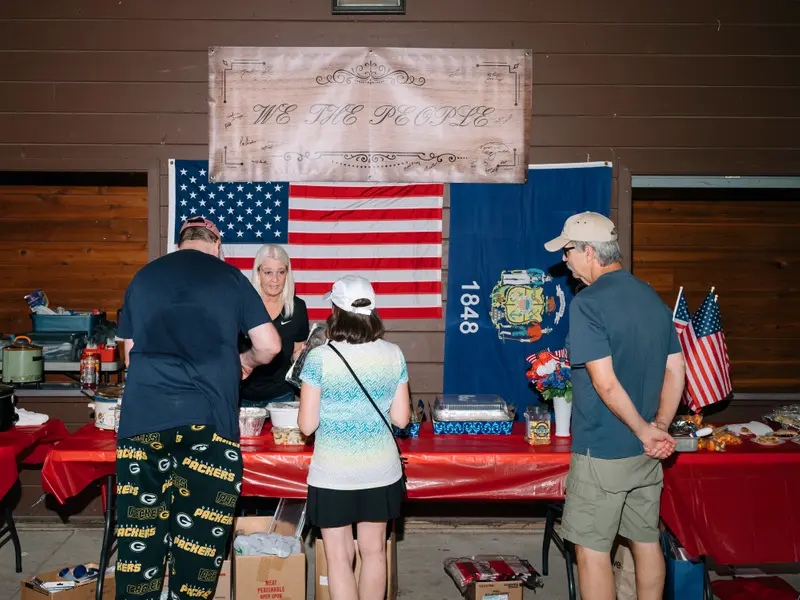
O’Matz: Folks on the right of the political spectrum can be hostile to traditional media outlets. How were you first received at the Constitution Day celebration, which commemorates the Sept. 17, 1787, signing of the U.S. Constitution, and which was hosted by a conservative group, We the People? How did you make people feel comfortable with us being at the event?
Kasnic: A lot of this stuff comes down to when you shake people’s hands, or you look people in the eye, and you’re sincere with them — a lot of the guard drops down and you simultaneously realize that we’re human beings and we’re just connecting. I think they can assume that I probably share some different beliefs than they do. But I don’t think that means that we can’t interact and be curious human beings with each other and be interested in one another’s thoughts and ideas. I grew up in a rural community, somewhat rural, in the Pacific Northwest, not really near any big town. My dad always says, “blue state, red towns” and it’s pretty accurate.
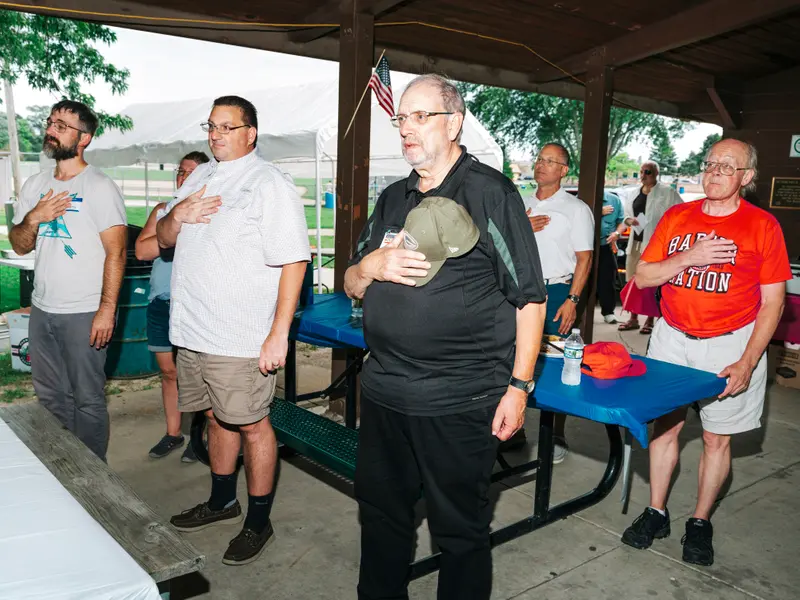
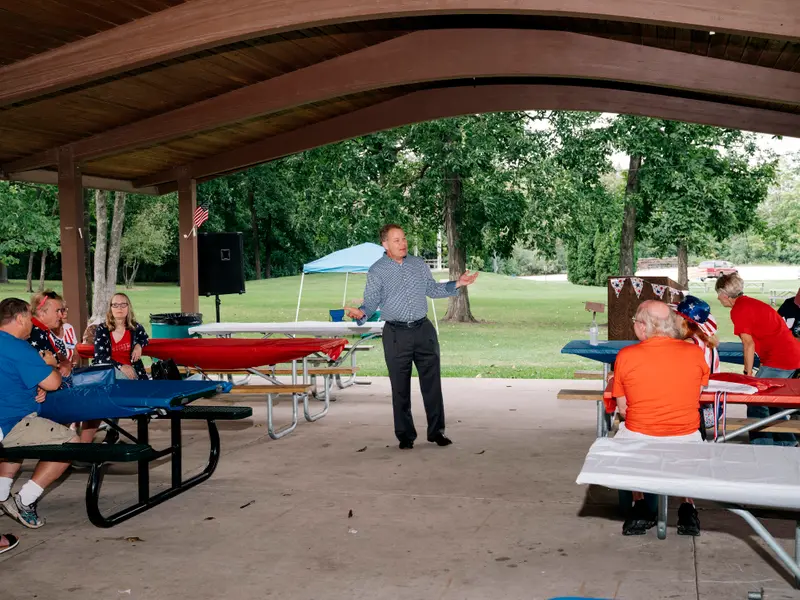
O’Matz: Do you approach your work differently than a breaking news photographer does? You told me you think of yourself as photographing slices of history. Can you explain what you meant?
Kasnic: That’s ideally what I’m doing. What I’m really trying to do is just point my camera toward the outside world. A lot of what I’m interested in can be tied into contemporary news topics. I don’t have a traditional photojournalist approach to many of these political events, even though I do have training in photojournalism. I go to these situations and I think about how the pictures can exist five, 10, 20 years from now, 30 years from now.
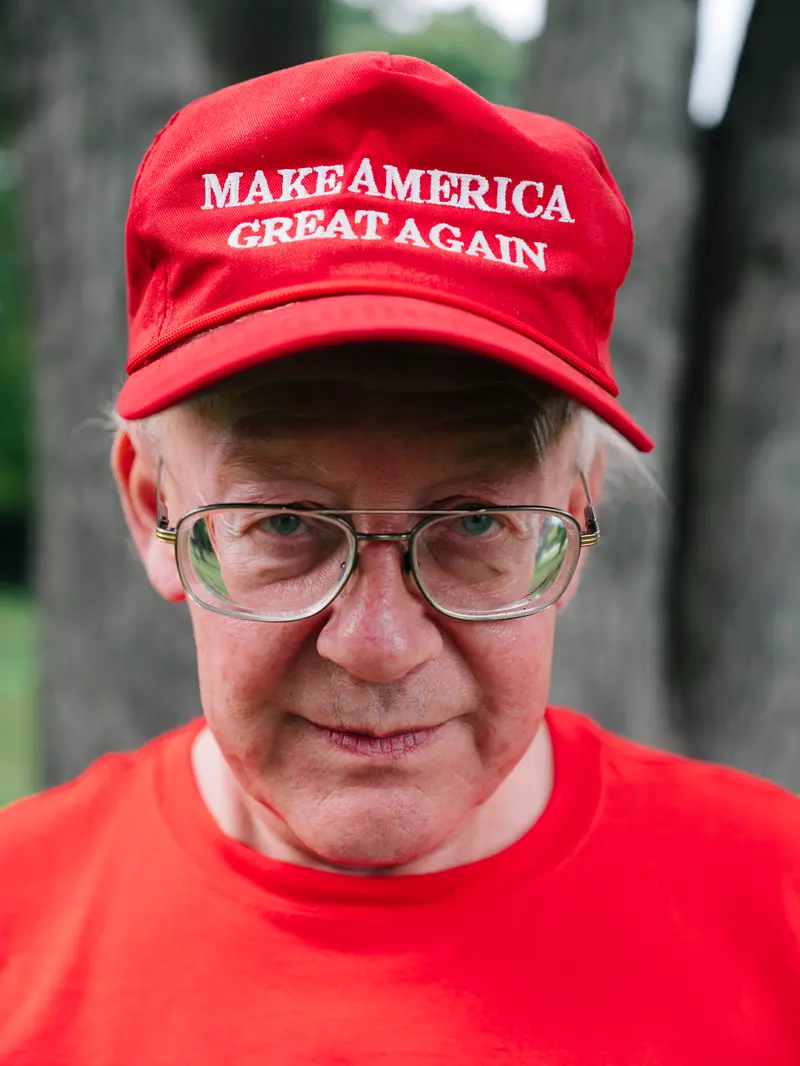
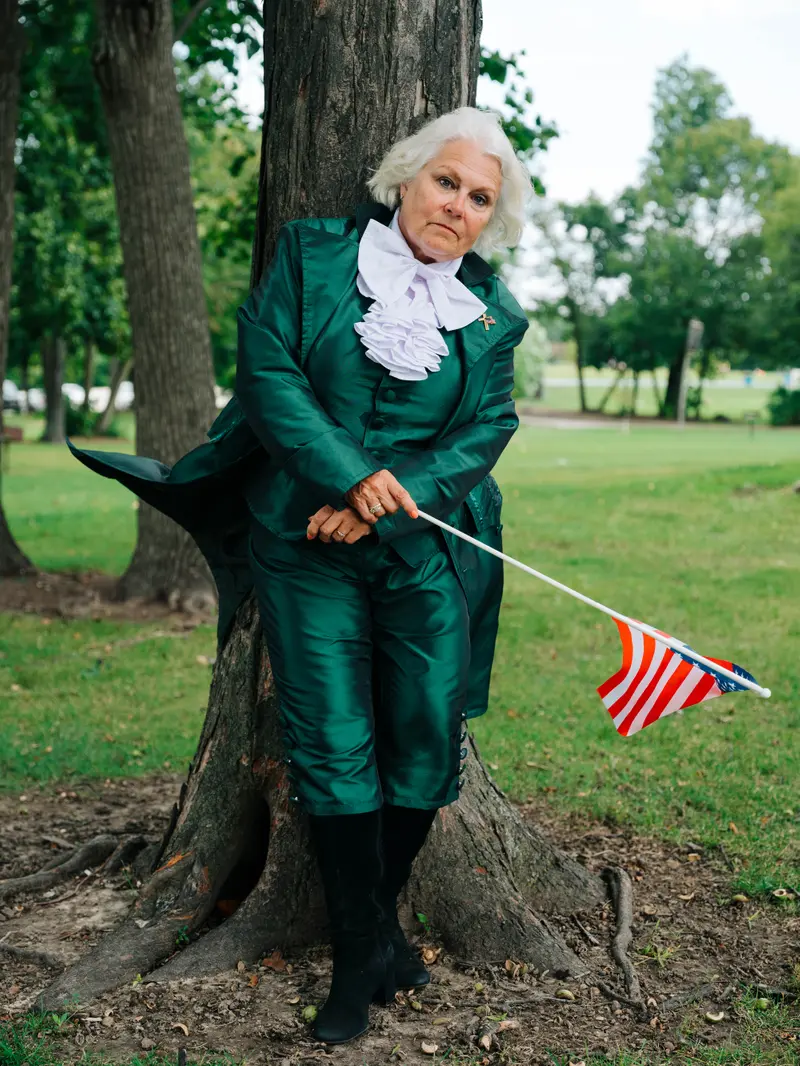
O’Matz: In New Berlin, I talked to a petite lady who gave her name as Mad Max and was dressed as a Founding Father: all in green with a jacket and a jabot and USA earrings. She joked that people were asking her if she was from “The Wizard of Oz.” What interesting conversations did you have?
Kasnic: The guy who was running the DJ booth. I just had a really good conversation with him and his wife. It’s kind of like talking to a really good friend’s mom and dad. I talked to him again this past Saturday at another event and he’s wearing a We the People of Waukesha shirt and underneath it says, “are pissed off.” So it’s “We the People of Waukesha are pissed off,” and “pissed off” is in a different font. I don’t really feel that type of energy from him. He’s just a real sweet guy, but obviously he might have some political beliefs that many folks in this country do find problematic. And I just think that nuance and that dynamic fascinates me.
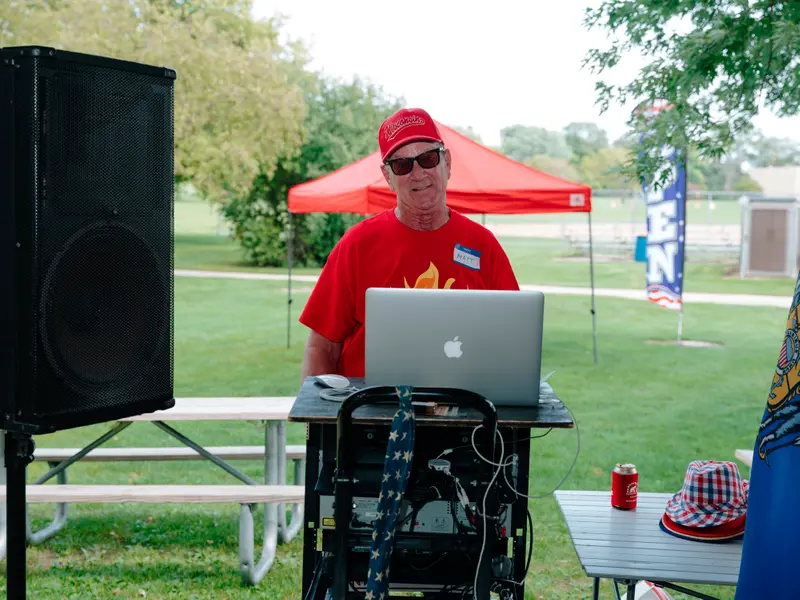
Day Two: “Meat-and-Greet” at the Republican Party of Waukesha County Headquarters
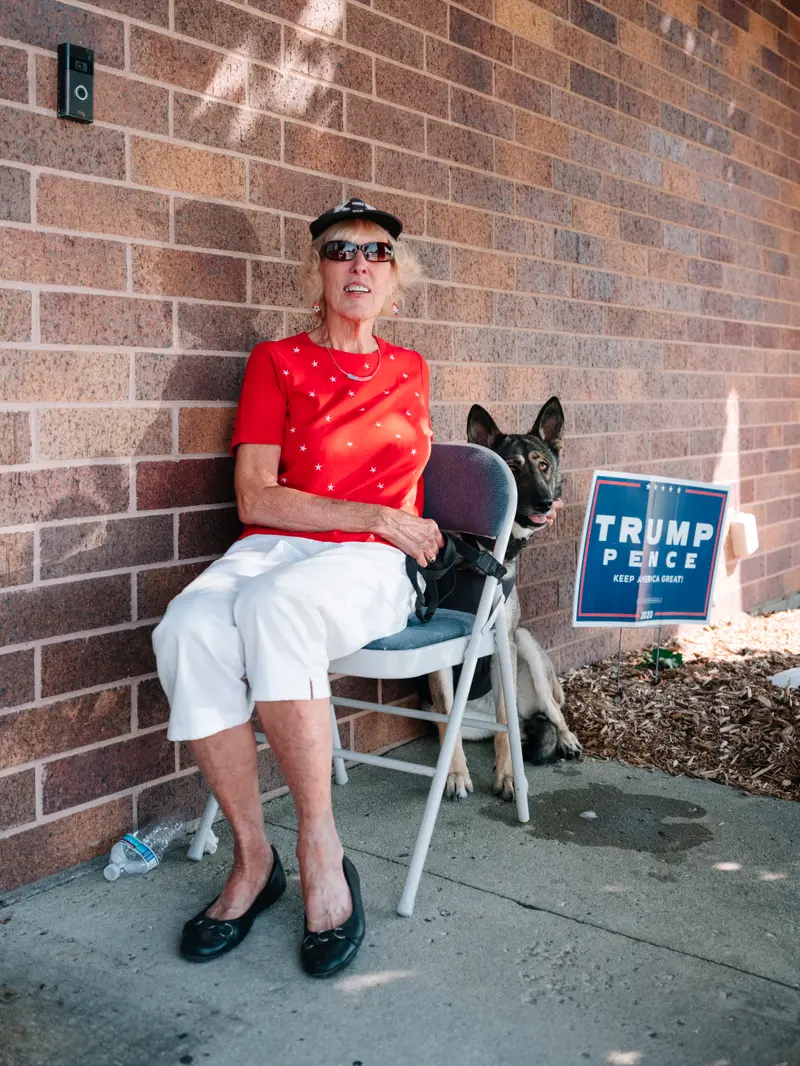
O’Matz: What was the scene where you shot the photo of the woman with the dog in Waukesha at the “meat-and-greet”? What about it caught your eye?
Kasnic: The dog’s name is Justice. It’s a “bomb-sniffing” dog, but it’s terrified of how many people are coming in and out. And then on the right end of the picture frame is a Trump-Pence sign. And so there’s these really interesting things happening, like America. There’s something nuanced about it.

O’Matz: You felt this event was not as valuable visually as the Constitution Day celebration. Why? It’s so colorful, and I love the sign on the table that reads, “Believe In: ‘In God We Trust,’ The Bill of Rights” etc.
Kasnic: If you’re being sent there for an assignment, you want to photograph the people who are speaking and you want to photograph a lot of people in the crowd and you want to kind of get the people in the back standing on the stairs because there’s nowhere else to sit. I looked at it like, “Maybe I don’t need to do that here.” There’s so many different walks of life, there’s so many different kinds of individuals that all kind of share the same beliefs. So they’re similar, but they look kind of different. There’s a guy with headphones. And then there’s a poster board of Trump in the background that gives a “Where’s Waldo?” effect to the photograph.

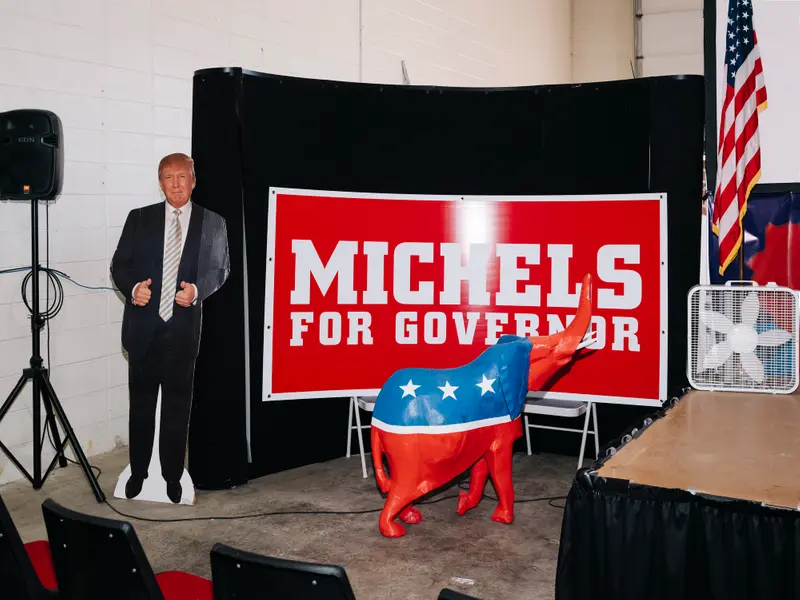
Day Three: Activist Harry Wait’s Hearing, Racine
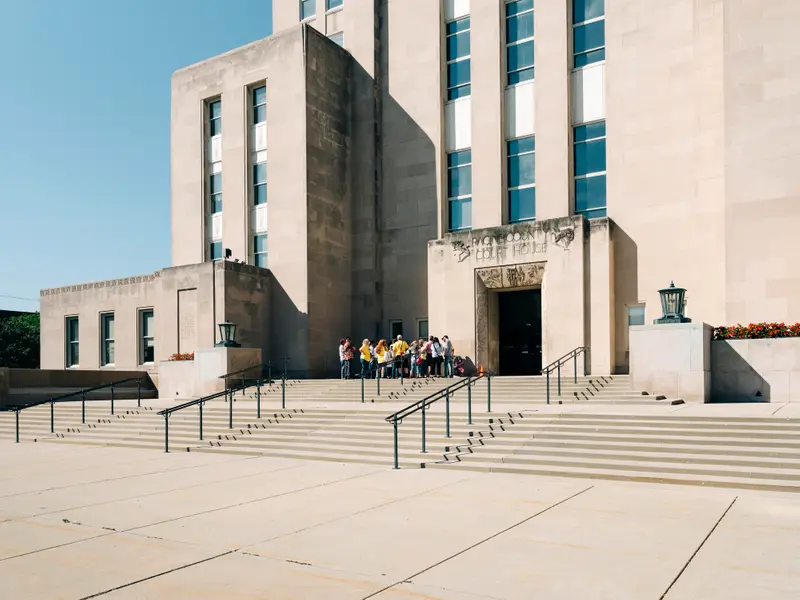
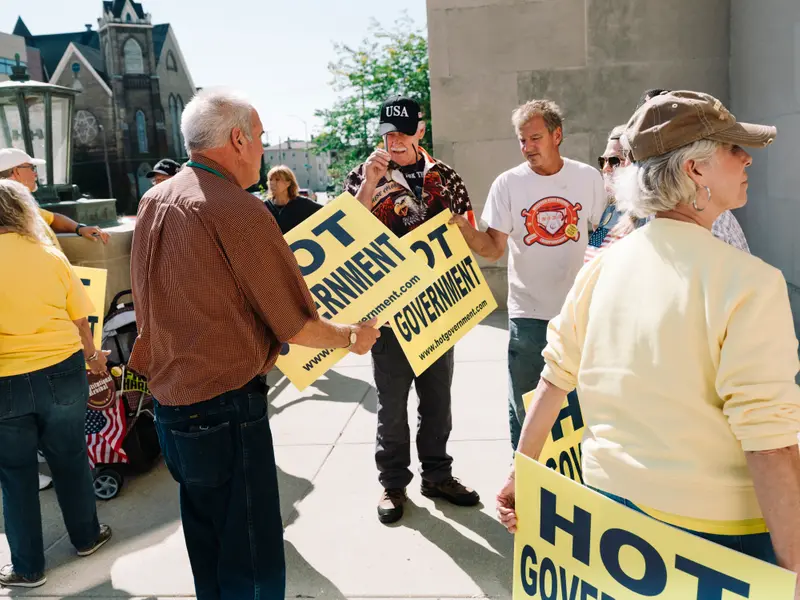
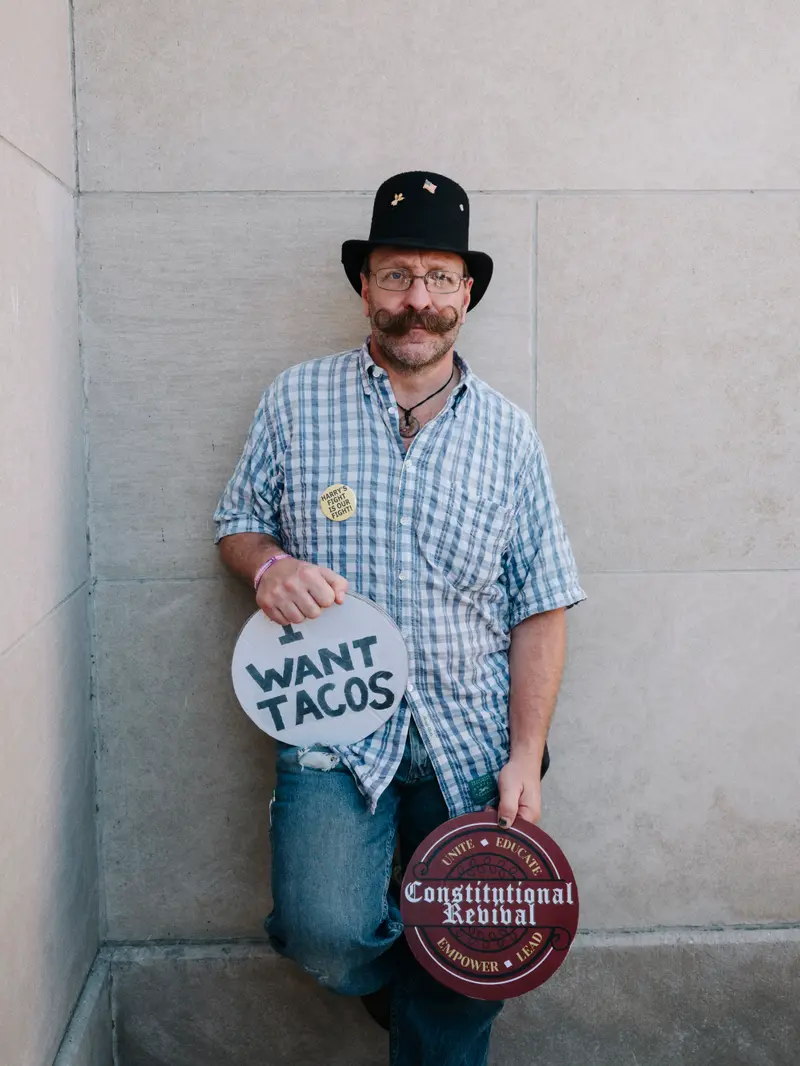
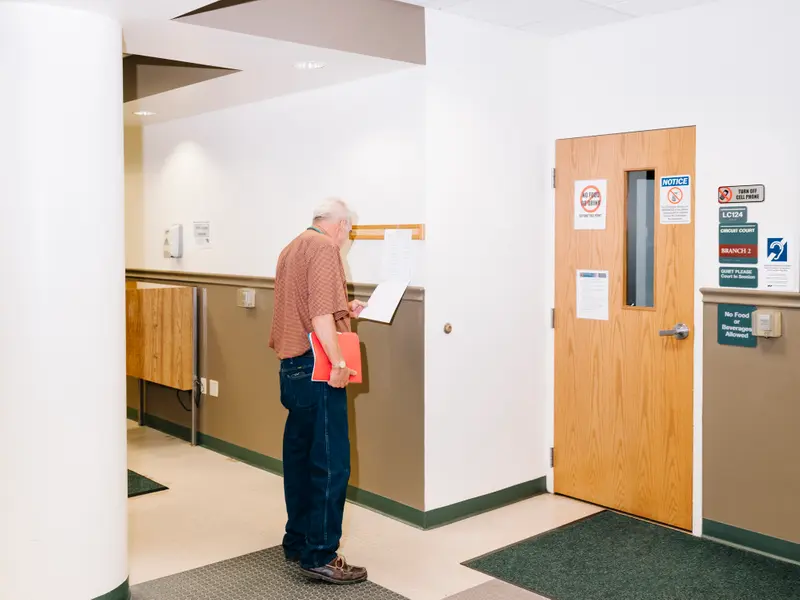
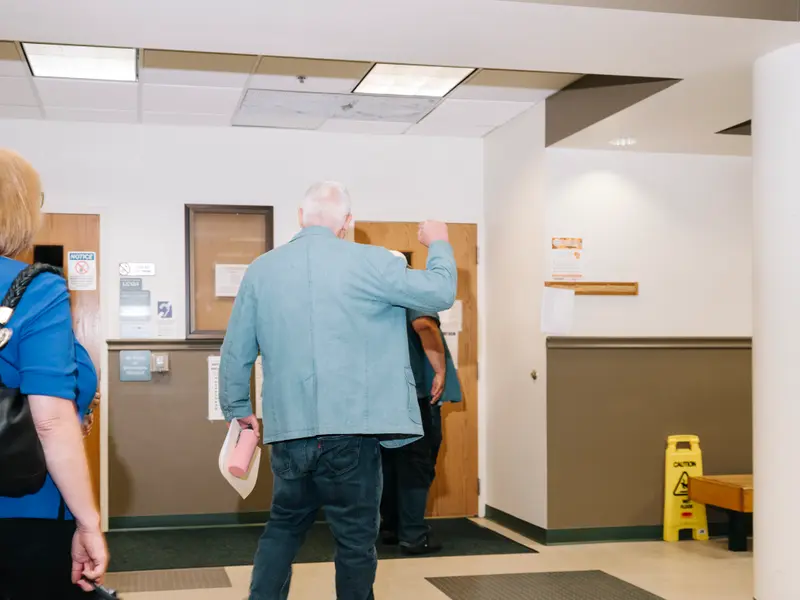
O’Matz: You seem really chill about having difficult conversations in these kinds of settings, where minds don’t get changed and where you still need access to do your work.
Kasnic: I’m a white guy and I’m cisgender. So I understand how my ability to go inside some of these spaces is a bit easier than it would be for other folks. Let’s say I was a Black or Latinx photographer: I’d probably have a different encounter with these people because some of the things that they’re saying about the world would impact me drastically differently.
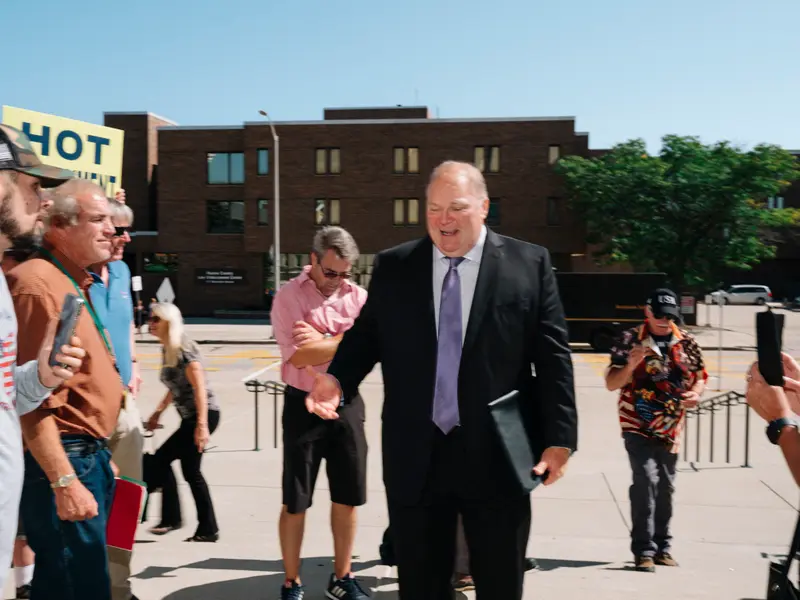
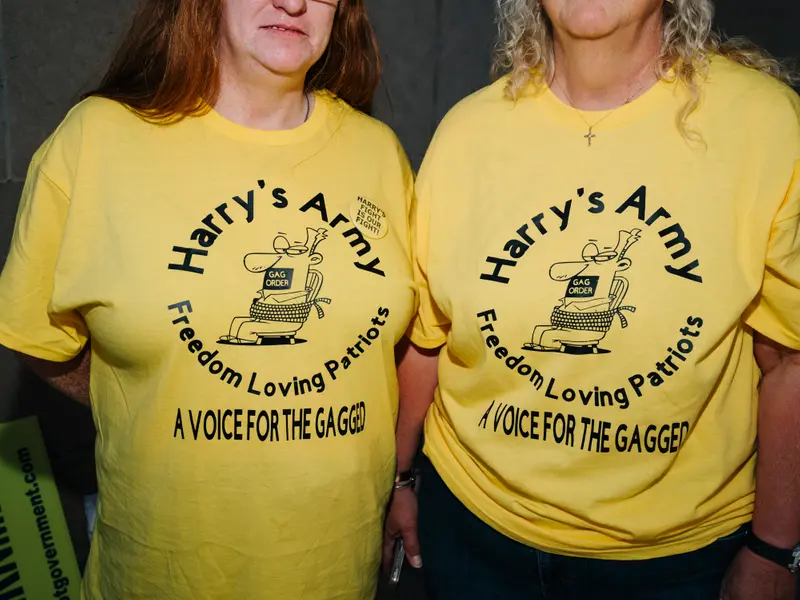
O’Matz: I notice in the picture below, you were focused not so much on Wait but on the crowd of media, why?
Kasnic: It’s interesting, the media scrum — to kind of step back and observe from a little bit of a distance. You look at a guy like Harry Wait and if you don’t live in Wisconsin, it’s likely you haven’t heard of him before. So I felt it important to step back and show that this person is under a microscope of sorts. It’s important to move your feet and see where your feet can take you for a different perspective.
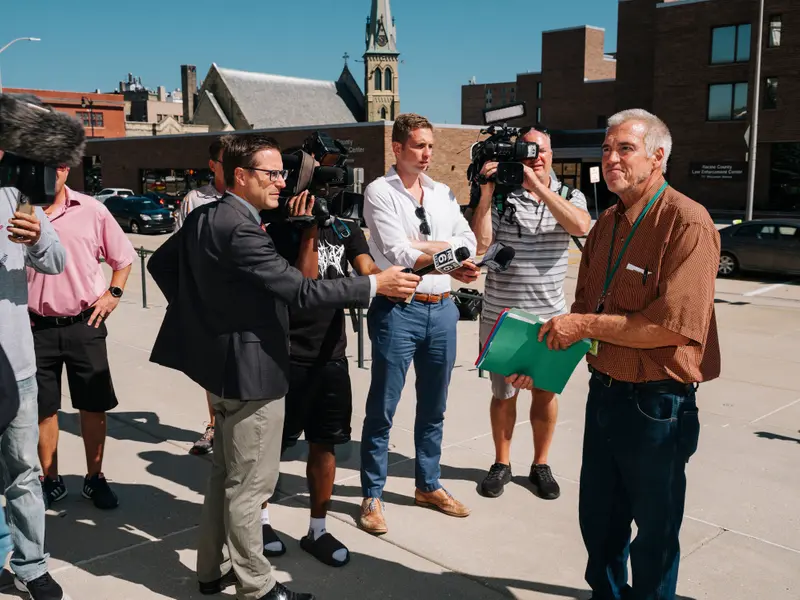
Kasnic: What photo do you think was most evocative of what we observed during our time together?
O’Matz: Probably the photo from the Constitution Day picnic, where people are standing with their hands or hats over their hearts. At times you really get this sense of fellowship, of connecting with others who share your beliefs. After all, they took time during a beautiful Saturday afternoon to talk about the Constitution, rather than, say, watch college football.
